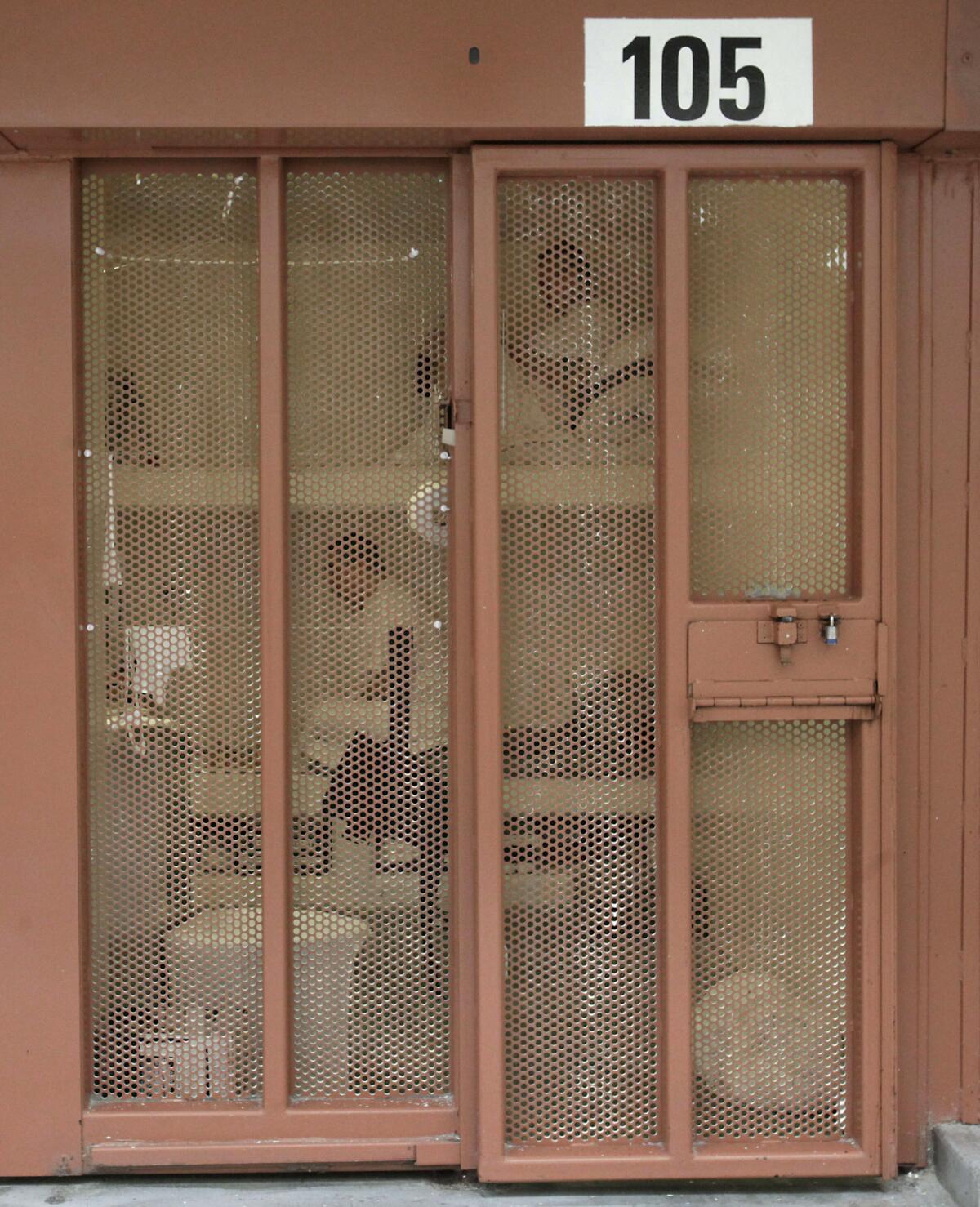State Senate panel endorses alternative to Gov. Brown’s prison plan

SACRAMENTO --A state Senate panel Wednesday approved a plan to reduce prison crowding by spending more on rehabilitation and mental illness and drug treatment. The Senate Budget Committee’s action sets the stage for a possible showdown with a competing proposal by Gov. Jerry Brown to find alternative housing for inmates.
The committee’s 11-5, party-line vote came just days after the Assembly Budget Committee endorsed the governor’s plan as the best way to comply with a federal court order to reduce the population in current state prisons by 9,600 inmates by the end of the year.
The governor has proposed that the state spend $730 million during the next two years on alternative housing, including county jails and private prisons, some of them out of state.
Senate President Pro Tem Darrell Steinberg (D-Sacramento) said the governor’s plan would not solve the crowding problem over the long term. Instead, Senate Democrats proposed that the state spend $200 million each year for increased programs to reduce the number of inmates returning to prison after their release.
“I approach this discussion with a firmness of conviction that our approach is more durable and sustainable than the administration’s approach, is less costly to the taxpayers and more consistent with public safety and sound public policy,” Steinberg told the Senate panel before its Democratic majority approved AB 84.
However, the Senate leader said he has an “open mind” to consider some effort to house inmates at alternative sites and said he would like to find “common ground” with the governor and Assembly Democrats who support Brown’s plan.
Brown quickly dismissed the Senate Democrats plan as “an inmate release plan by another name, totally dependent on an illusory legal settlement.”
The governor’s proposal is needed to immediately meet the demands of the courts to reduce the prison population by the end of this year, said Jeffrey Beard, secretary of the California Department of Corrections and Rehabilitation. “We believe this is the only plan that will insure that no inmates will be released early,” Beard told the committee.
The plan by the Senate Democratic Caucus would include negotiating a settlement with inmates whose lawsuits over crowded prison conditions resulted in the court order. The settlement would have to be finalized by Sept. 13, when the legislature adjourns for the year. The senators’ plan also depends on the federal judges agreeing to a three-year extension in the deadline for meeting a prison population cap.
Beard doubted the court would provide an extension and he was reluctant to give the inmate plaintiffs more control of the prisons.
Added Brown: “I will not turn over our criminal justice system to lawyers who operate at the behest of their inmate clients, and not the people, whose interests we are sworn to uphold. Moreover, the plan adds huge burdens to local government, which threaten to undo the remarkable progress we’ve made in realignment.”
Republican Senators said they would like to see more spent on rehabilitation but they described Steinberg’s plan as not practical given the looming deadline to comply with the court order.
“These may be good things but we can’t do it in a week,” said Sen. Mark Wyland (R-Escondido) . Beard said his department plans to look at more rehabilitation programs as a longer-term issue once the court order is complied with.
ALSO:
An intra-party squabble on prisons
Cellphones shouldn’t be able to work in moving cars, experts say
Lawmakers look to further restrict teen drivers’ use of mobile devices
More to Read
Get the L.A. Times Politics newsletter
Deeply reported insights into legislation, politics and policy from Sacramento, Washington and beyond. In your inbox three times per week.
You may occasionally receive promotional content from the Los Angeles Times.











